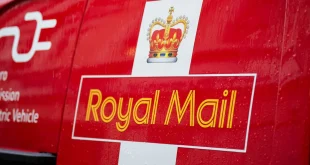Labour’s election manifesto will include plans to force companies to hand 10 per cent of their shares to workers over 10 years despite a business backlash, according to people familiar with the document.
The manifesto, due to be unveiled on Thursday, will also include a windfall tax on oil companies as part of its attempts to shift the UK towards a low-carbon economy, the Financial Times has established.
It highlights how Labour leader Jeremy Corbyn has devised what is expected to be the most leftwing party manifesto in a generation.
Labour is seeking to shift the election debate away from Brexit, where its position — offering a second referendum — has failed to resonate with most Leave and Remain voters.
Instead it wants to focus on a major increase in tax and spending and a swath of nationalisations including water companies, railways, Royal Mail, National Grid, private finance initiative schemes and BT’s network arm.
Shadow chancellor John McDonnell’s “shares for workers” scheme would oblige companies with more than 250 employees to give equity to so-called inclusive ownership funds at the rate of 1 per cent each year over a decade.
The funds would receive the dividends for those shares but distribute to employees only up to a capped level of £500 per worker. Any surplus would be passed to the government.
Clifford Chance, the law firm, estimated in September that Mr McDonnell’s scheme would mean the transfer of almost £300bn of shares away from investors over 10 years.
The firm suggested annual dividend payouts to the inclusive ownership funds — capped at £500 per worker — would eventually be as high as £10.7bn a year if applied to international operations of all UK-based companies.
Common Wealth, a leftwing think-tank, has outlined an alternative scenario whereby the funds would only apply to UK economic activity, resulting in a lower dividends total of £5.8bn a year.
Labour’s plans for the funds have made it through to the party’s 80-page manifesto, which was signed off on Saturday at meeting of senior MPs and officials in London.
However, the shadow Treasury team has not yet nailed down the precise details of how the funds would work, meaning the exact scope of the plans could be imprecise in the manifesto.
Speaking on Saturday, Mr Corbyn said the manifesto was a “transformative document” that could create “a more egalitarian society that cares for all”.
But Carolyn Fairbairn, director-general of the CBI, warned on Sunday about the potential the consequences of a Labour government.
“They are asking questions about inequality, they are asking questions about public services. These are the right ones,” she said.
“But we look at the policies on the table and we have real concerns that they are going to crack the foundations of our economy.”
Mr McDonnell has dropped a plan to give a new “right to buy” to private tenants in the manifesto amid fears that the policy was not workable.
He floated the proposal in September, triggering alarm among many of Britain’s almost 3m buy-to-let landlords, but Labour aides said it had been ditched.
The manifesto will however include many far reaching policies, such as incentivising local councils to introduce more state-owned bus services to compete with private operators.
The document will pledge tens of billions of pounds of investment to shift the UK towards a low-carbon economy, with loans for buyers of electric cars, investment in wind farms and a massive home-insulation programme.
The manifesto, overseen by Labour policy chief Andrew Fisher, will include a series of industry nationalisations, a ramping up of spending on public services, and £400bn of additional state borrowing — much of it for investment in infrastructure.
Labour will pledge a revolution in the labour market by introducing sectoral collective bargaining, promising a 32-hour working week by 2030 — albeit on a voluntary basis — and banning zero-hours contracts.
However, several policies approved at Labour’s annual conference in September have since been watered down ahead of the manifesto.
Labour delegates backed free movement of EU citizens after Brexit, a 2030 net zero-carbon target and a proposal to effectively scrap private schools.
Mr Corbyn’s team is looking for ways to respect the spirit of the conference vote on immigration but will resist complete free movement amid fears it could alienate some voters.
The Labour leader refused to say on Sunday if free movement would be continued after Brexit, saying only “there will be a great deal of movement”.
The manifesto is expected to use aspirational language in trying to reach the 2030 net-zero carbon target.
The document is also expected to fall short of the conference resolution that would de facto have abolished private schools.
The manifesto will promise to withdraw charitable status from independent schools but stop short of stripping all their “endowments, investments and properties”.
Source link


